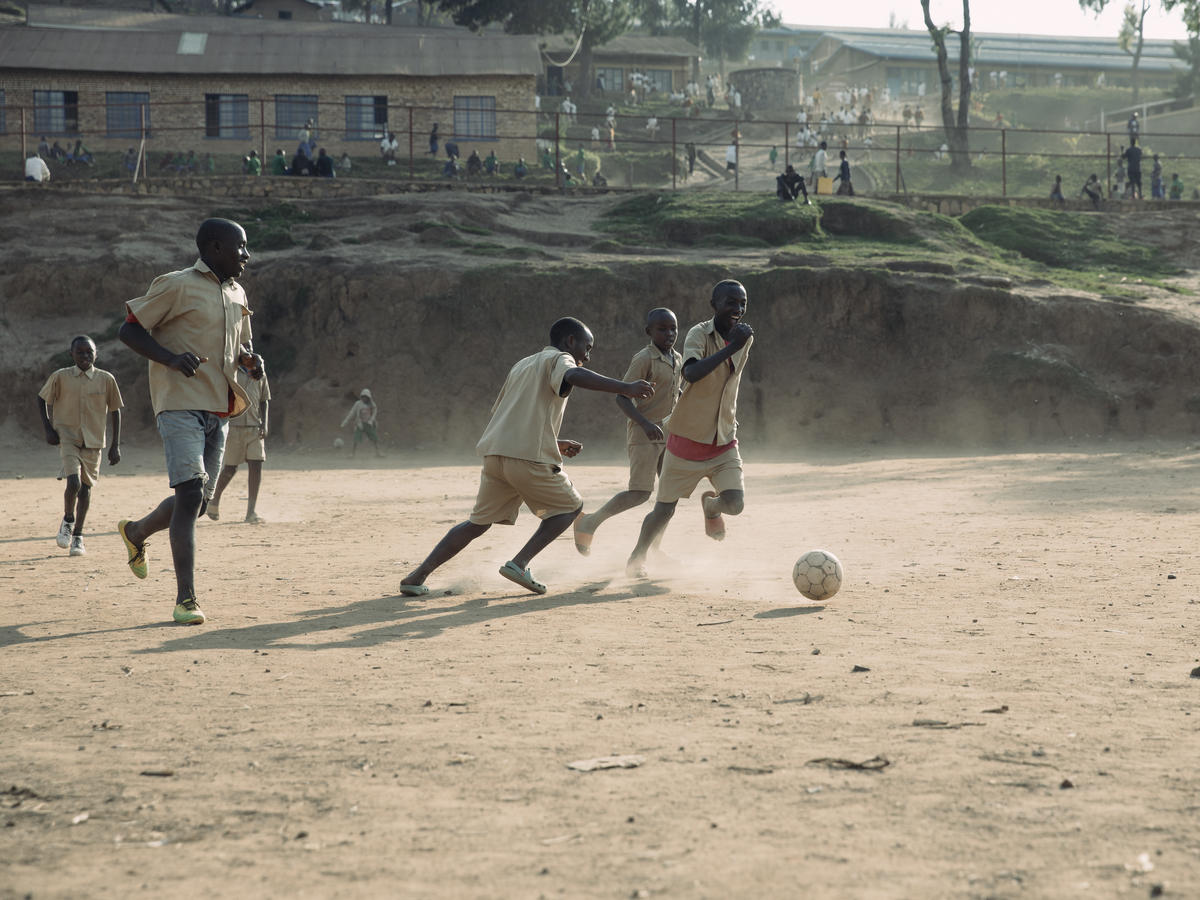Child refugees book competes for top South African award
Child refugees book competes for top South African award

JOHANNESBURG, South Africa, June 8 (UNHCR) - A year after The Suitcase Stories was launched to coincide with World Refugee Day, the book in which refugee children described their lives before and after arriving in South Africa is on the shortlist for the country's top non-fiction award.
The 2007 Sunday Times Alan Paton Award, to be decided four days before this year's World Refugee Day (June 20), will go to a work published during the previous year that meets the prestigious award's criteria: "The illumination of truthfulness, especially those forms of it that are new, delicate, unfashionable and fly in the face of power, compassion, elegance of writing, and intellectual and moral integrity."
The book was compiled by Glynis Clacherty, a researcher who has worked the past 10 years with children in southern Africa and started a project in which children could explore - through art - the often violent pasts they had experienced. Working with art teacher Diane Welvering, she gave the children old suitcases to decorate and then to hold drawings about their experiences.
With the encouragement of the children, Clacherty began taping their explanations of the drawings they made. Those stories, poignant and often disturbing, were combined with the paintings on their suitcases to illuminate the plight of the thousands of refugee children in the region.
"If you look at some of the children featured in the book, they are some of the most marginalized in our society," Clacherty told The Sunday Times newspaper, which founded the literary awards in 1989 and convenes the judging panel. "What the book is saying is that everybody has a story to tell, and even those people at the edge of our society can teach us something if we take the time to listen."
The winner will be announced on June 16 from a shortlist of five books at a gala dinner during the annual Cape Town Book Fair. Past winners of the 75,000 rand (US$10,500) award have included Nelson Mandela for his autobiography Long Walk to Freedom.
The suitcase project, which received support from the UN refugee agency, began in 2001 in Johannesburg, worked with children from a deprived area of South Africa's largest city where many refugees live. Most of the children did not have parents and were being cared for by guardians.
Their pictures - and the stories they triggered - involved both harrowing experiences in their past and happy memories of childhood that had almost been crowded out. The process also helped them deal with the difficulties of growing up as refugees in another country.
"By talking to the children involved in the Suitcase Project I became really interested in the kind of discrimination they experienced in South Africa, the terrible xenophobia," said Clacherty.
The South African government and UNHCR have expressed concern about a rising number of violent acts of xenophobia in various parts of the country over the past year and is focusing this year's World Refugee Day celebrations on combatting the problem.
Clacherty, who works periodically as a consultant for UNHCR on children's issues, specialises in participatory work with children and has tackled issues including violence, HIV/AIDS, child labour, poverty and migration. She remains in contact with most of the children who participated in the original Suitcase project and reports that - despite some continuing struggles - many have now finished school and are supporting themselves. The art project continues, integrated since last year into the activity of a Johannesburg non-governmental organization.
"This kind of work is a mixture of both joy and sadness. I heard stories about genocide or about losing a mother and father so there was sadness and sometimes I'd come home feeling really heavy," Clacherty said. "At the same time I felt an incredible sense of their resilience, courage and even humour. When I was transcribing the interviews I would stop and just laugh about some of the things that the children said."
By Jack Redden in Johannesburg, South Africa









